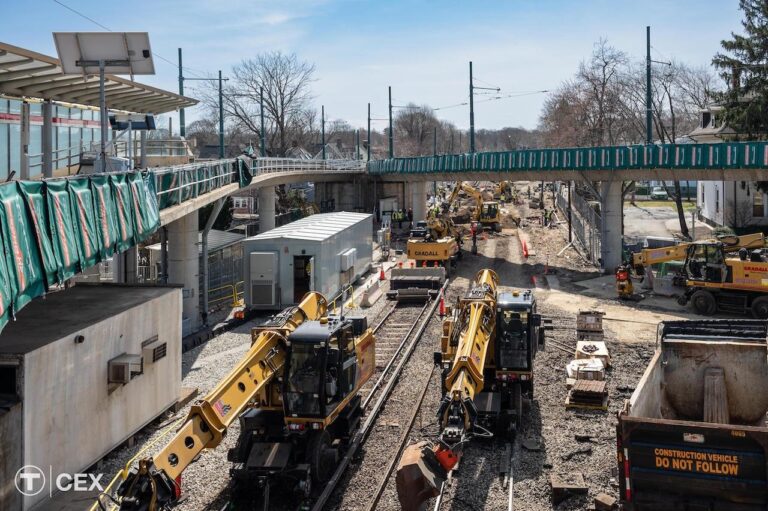The Massachusetts Bay Transportation Authority (MBTA) Board has approved a $9.8 billion capital investment plan aimed at transforming the region’s transit infrastructure from 2026 through 2030.The ambitious five-year blueprint prioritizes modernization and expansion projects designed to enhance service reliability, accessibility, and overall passenger experience across the MBTA’s network. This notable funding commitment marks a major step toward addressing long-standing system challenges and supporting future growth in the Boston metropolitan area.
Table of Contents
- MBTA Board Endorses Ambitious Five Year Investment Strategy
- Focus Areas Include Fleet Modernization and Infrastructure Enhancements
- Funding Allocations Target Safety Improvements and Accessibility Upgrades
- Experts Recommend Increased Community Engagement to Maximize Project Impact
- In Summary
MBTA Board Endorses Ambitious Five Year Investment Strategy
The MBTA Board has officially approved a complete $9.8 billion capital investment plan targeting the 2026-2030 period, marking a decisive step toward modernizing and expanding the region’s transit infrastructure. This ambitious strategy prioritizes addressing critical system needs by focusing on upgrading aging equipment, expanding service capacity, and enhancing the overall rider experience. Key areas of focus include extensive renovations to rolling stock-such as the MP36 locomotives and F40PH-2C fleet-and crucial improvements to rail infrastructure, signaling systems, and station accessibility.
Highlights of the plan include:
- Modernization of commuter rail locomotives and passenger cars to improve reliability and energy efficiency
- Expansion of maintenance facilities and introduction of state-of-the-art technology for real-time operational monitoring
- Comprehensive upgrades to existing light and heavy rail lines to reduce delays and increase train frequency
- Investment in safety and accessibility projects to ensure equitable service for all users
The board’s endorsement reflects a unified commitment to transforming Massachusetts’ transit landscape, boosting economic growth and sustainability. Implementation of this plan promises not only to enhance day-to-day transit operations but also to lay critical groundwork for future expansion and innovation across the MBTA system.
Focus Areas Include Fleet Modernization and Infrastructure Enhancements
The newly approved $9.8 billion capital plan underscores the MBTA’s commitment to modernizing its aging fleet, aiming to enhance reliability and passenger experience across all modes of transit. Key investments focus on upgrading commuter rail locomotives and cars, including overhauls of MP36 and GP40-MC series units, ensuring these workhorses meet contemporary operational standards and environmental goals. Modernization efforts will prioritize:
- Procurement of new, energy-efficient railcars and buses designed for durability and passenger comfort
- State-of-the-art technology integration to improve real-time tracking, interaction, and safety systems
- Extensive rehabilitation of existing rolling stock to extend service life and lower maintenance costs
Infrastructure enhancements are equally prominent, with targeted upgrades to tracks, signals, stations, and maintenance facilities. These efforts will address critical bottlenecks and support increased service frequency and accessibility. Planned improvements include:
- Signal system modernization to boost operational efficiency and reduce delays
- Station refurbishments and accessibility upgrades to meet ADA standards and improve customer experience
- Track renewal projects focusing on safety, speed, and reliability enhancements
Funding Allocations Target Safety Improvements and Accessibility Upgrades
The MBTA’s newly approved capital plan dedicates significant resources to enhancing rider safety and expanding accessibility throughout the transit network. Prioritizing these elements, the funding will support critical upgrades such as modernizing signal systems, installing advanced surveillance technologies, and upgrading emergency communication infrastructure to ensure swift responses during incidents. A key focus involves extensive improvements to station environments, including tactile warning strips, improved lighting, and enhanced signage designed to aid all passengers, especially those with disabilities.
Key initiatives include:
- Installation of ADA-compliant elevators and ramps across multiple stations
- Implementation of real-time safety alert systems on trains and platforms
- Upgrading platform edges and walkways for safer boarding procedures
- Deployment of text-to-speech technology for clearer public announcements
These investments align with the MBTA’s commitment to fostering a transit surroundings that is safer, more inclusive, and responsive to the needs of all riders, reflecting an ongoing dedication to equity and operational excellence.
Experts Recommend Increased Community Engagement to Maximize Project Impact
Stakeholders emphasize that robust community involvement is essential to the success of the MBTA’s ambitious capital plan. Urban planners and transit experts argue that early and ongoing dialogues with residents, businesses, and advocacy groups will help surface critical insights, mitigate disruptions, and foster shared ownership over the projects’ outcomes. Clarity around project timelines, budgets, and expected benefits is seen as a foundational element that builds trust and encourages meaningful participation.
Among the recommended strategies to enhance engagement are:
- Hosting regular town hall meetings and interactive forums to gather feedback at every stage of project development.
- Utilizing digital platforms and social media to reach wider audiences and facilitate ongoing conversations beyond physical events.
- Establishing community advisory panels that reflect the diverse demographics and transit users impacted by the improvements.
Experts agree that these collaborative approaches not only amplify the voices of the affected communities but also increase the long-term efficacy and sustainability of the MBTA’s investments. Integrating community priorities alongside technical expertise ensures that the transit system evolves in step with the region’s needs.
In Summary
With the MBTA Board’s approval of the $9.8 billion capital plan for 2026-2030, the agency sets a clear path toward modernizing and expanding Boston’s transit infrastructure. The ambitious investment underscores a commitment to enhancing service reliability, accessibility, and rider experience across the commuter rail, light rail, and subway networks. As the MBTA moves forward, all eyes will be on the execution of these projects, which aim to meet the region’s growing transportation demands and support sustainable urban mobility for years to come. For continued updates on the MBTA and its future developments, stay tuned.

